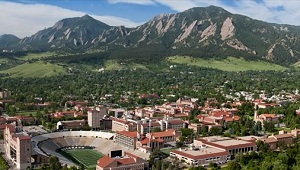Boulder, CO votes to create clean energy utility
 While elections in these in-between years tend to pass with little interest or excitement, Boulder, Colo., residents eagerly awaited the ballot returns to see what their renewable energy future would look like.
While elections in these in-between years tend to pass with little interest or excitement, Boulder, Colo., residents eagerly awaited the ballot returns to see what their renewable energy future would look like.
The city was the first in the country to vote to sever ties with its utility provider in favor of pursuing solar, wind and other clean energy alternatives.
Boulder passed a ballot initiative that will allow the city to begin investigating the possibility of developing a municipal utility and severing ties with Xcel Energy.
“This is the first time a city has said ‘we reject what the utility is offering,’” said former mayor and renewable energy advocate Shaun McGrath. “It’s significant nationally because it sets a precedent.”
McGrath campaigned for the change as a member of the Boulder Clean Energy Business Coalition.
He said the city has wanted to pursue “greener” paths for years and has approached Xcel asking for options that would allow the community to bring in more distributive generation with rooftop solar arrays and community solar gardens along with wind farms and geothermal sources.
The city has carbon reduction goals that far exceed the 30 percent renewable energy portfolio standard the state requires Xcel to meet by 2020.
“And Xcel has not been forthcoming with ideas to help the city meet those goals,” McGrath said. “So Boulder has just this one other option.”
If the utility won’t help the city meet its energy goals, the city will create its own municipal utility and cut Xcel out of the market, which generated more than $14 million in revenue for the company last year.
“The city can still negotiate with Xcel,” McGrath said. “But now it’s really incumbent upon Xcel to work it out with Boulder.”
He said this will not be an overnight process. There is a lot of research to do and the city won’t be able to move forward unless it can promise to match Xcel’s power rates. The utility has also said it won’t sell its infrastructure if the city decides to take over, which means Boulder would have to go through the condemnation process to acquire power lines and transformers. It will probably take five to 10 years to complete the process, McGrath said.
But the move sent an important message to utility companies and city governments around the country. If cities want green energy, utilities will have to listen.
“If not in Boulder, where?” McGrath said.



